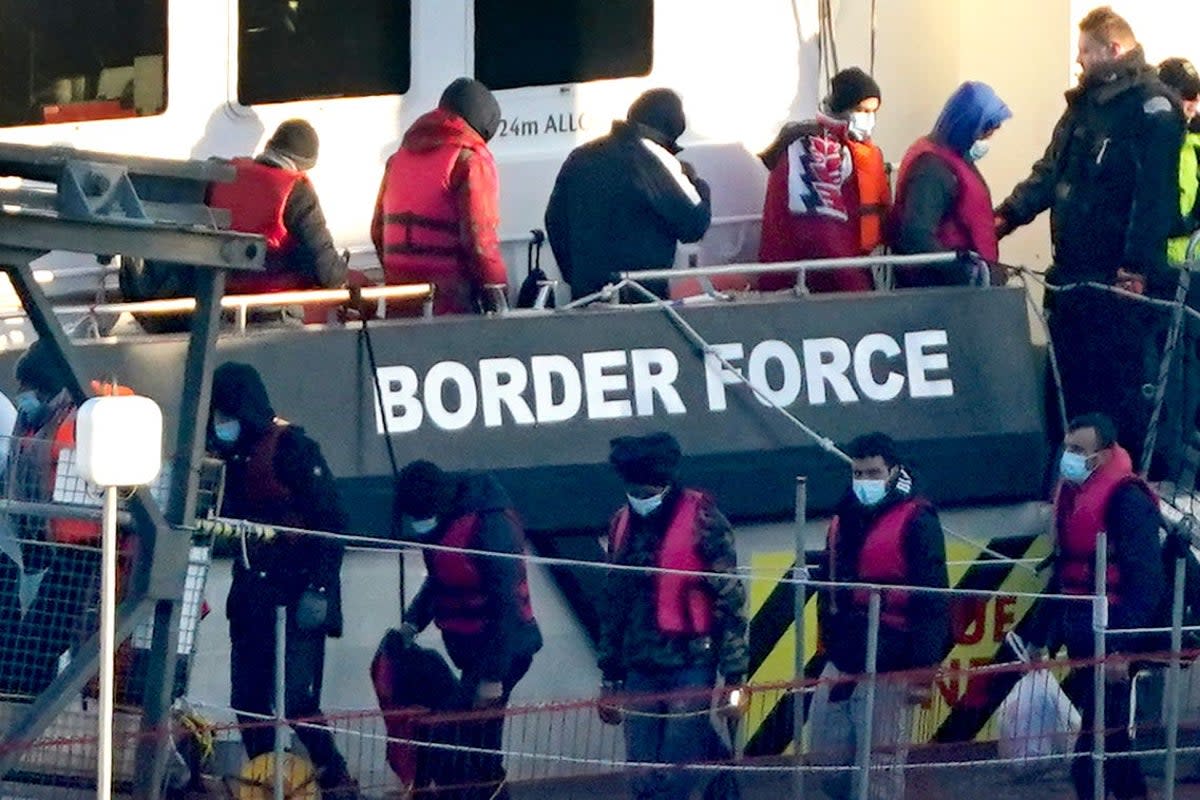What is the plan for migrant boats? Bill to become law as Government sees off Lords challenge

The Government’s controversial Illegal Migration bill is set to become law after it saw off a series of challenges in the House of Lords on Monday.
In a late-night debate in the chamber, the Conservative frontbench saw off amendments by peers including time limits on child detention and modern slavery protections.
The bill — which would give the Government powers to send asylum seekers arriving in the UK by small boats to Rwanda — is a key part of the Government’s flagship pledge to stop small boats crossing the English Channel.
Prime Minister Rishi Sunak made addressing illegal immigration one of his key pledges at the start of the year.
For weeks, MPs have been engaged in a protracted battle over the bill with the Lords, where it had repeatedly been amended by opposition peers. It has also faced severe criticism from immigration lawyers.
The bill will now need to receive royal assent from King Charles to become law.
What is the Government’s plan for migrant boats?
Back in March, Rishi Sunak and Home Secretary Suella Braverman unveiled their plan to crack down on “small boat crossings”, an issue that the Prime Minister named as a priority when outlining his five key pledges in January.
They created the Illegal Migration Bill to pursue this. In short, the bill means that anyone deemed to have arrived in the UK “illegally” or through “irregular routes” will not be able to claim asylum.
It gives the Home Secretary vast new powers to detain adults and children entering the UK illegally for up to 28 days on arrival without bail or judicial review until they are removed, either to Rwanda or another “safe” third country.
The Rwanda plan was ruled unlawful by the Court of Appeal in June, but ministers are challenging the judgment.
Under the new rules, refugees and migrants would be then expelled from the UK, barred from further re-entry, and unable to petition for British citizenship. The only ones who will be able to lodge an appeal to pause the deportation would be those under 18, those who are medically unfit to fly, or those who are at “real risk” of serious harm in the country they are removed to.
Braverman told the Commons: “They will not stop coming here until the world knows that, if you enter Britain illegally, you will be detained and swiftly removed back to your country, if it is safe, or a safe third country such as Rwanda.
“And that is precisely what this bill will do. That is how we will stop the boats.”
Currently, the European Convention on Human Rights and the UN's Refugee Convention both grant those seeking asylum in the UK the ability to do so. However, Braverman believes that the new legislation is likely to be compatible with international law, allowing the UK to enact the bill.
What has been the reaction to the small boats plan?
Before last week’s debate on the bill, more than 60 people — including victims of torture, refugees, asylum seekers, and those already granted asylum in the UK — as well as about 30 campaign groups, wrote to MPs to express their horror at the bill and urged them to oppose the proposed legislation.
Campaigners have criticised the Government’s plans and raised questions about whether some of the rules are in line with the European Convention on Human Rights.
According to the Refugee Council, thousands of people will be permanently in limbo as a result of the measures.
Amnesty International’s Steve Valdez-Symonds called it “disgraceful posturing and scaremongering”.
Labour has also criticised the Government, accusing ministers of recycling the same promises that accompanied the passage of last year’s Nationality and Borders Bill.
In March, Labour’s shadow home secretary, Yvette Cooper, said the bill created more chaos by letting criminals off the hook. She referred to the “hundreds of children missing from asylum hotels who have been picked up by criminal gangs”, saying barely any of them are being prosecuted.
Lucy Moreton, of the Immigration Services Union, told BBC Radio 4’s Today programme when the bill was published in March: “The plans as they’ve been announced really are quite confusing. We can’t move anyone to Rwanda right now — it’s subject to legal challenge.
“We can’t remove anyone back into Europe because there are no returns agreements, and we lost access to the database that allows us to prove that individuals have claimed asylum in Europe — Eurodac — when we left with Brexit.
“So, unless we have a safe third country that isn’t Rwanda to send people to, this just doesn’t seem to be possible.”

 Yahoo News
Yahoo News 
